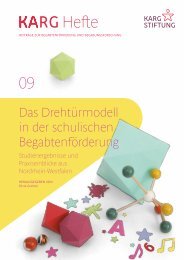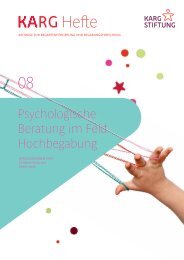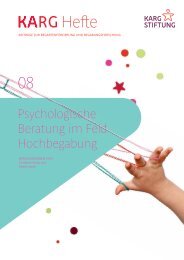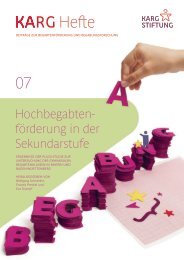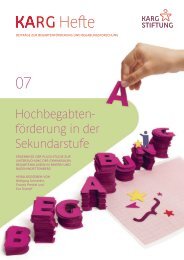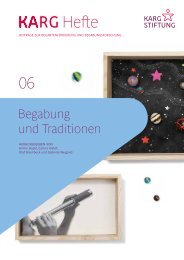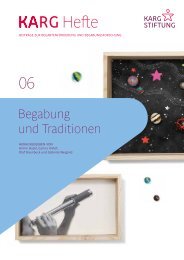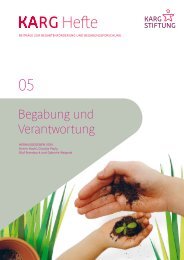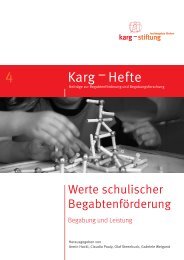FAQS: Frequently asked questions about giftedness
The Karg Foundation receives a lot of questions on the subject of giftedness—FAQs (Frequently Asked Questions)—far more often indeed than it did ten years ago. And this is a good thing! Many people involved in the educational processes of children have come to realize that giftedness can also be a fundamental personality trait of children and adolescents. The Karg Foundation wants to answer the questions you may have not only as educational and psychological professionals in educational institutions or working as educational providers, policy makers, or in training and further education institutes, but as parents and gifted people also: What is giftedness? How can it be identified? Who can provide advise for gifted children and their families? How can they be supported in the best possible way?
The Karg Foundation receives a lot of questions on the subject of giftedness—FAQs (Frequently Asked Questions)—far more often indeed than it did ten years ago. And this is a good thing! Many people involved in the educational processes of children have come to realize that giftedness can also be a fundamental personality trait of children and adolescents.
The Karg Foundation wants to answer the questions you may have not only as educational and psychological professionals in educational institutions or working as educational providers, policy makers, or in training and further education institutes, but as parents and gifted people also: What is giftedness? How can it be identified? Who can provide advise for gifted children and their families? How can they be supported in the best possible way?
Create successful ePaper yourself
Turn your PDF publications into a flip-book with our unique Google optimized e-Paper software.
How can support be provided<br />
within the family?<br />
Especially for younger children (but not only), the<br />
family is an important place of support. For younger children<br />
who are at the early stages of gifted development, it<br />
is important to create a variety of learning and experiential<br />
opportunities in many different areas. This provides children<br />
the opportunity to discover what interests them and<br />
what they are particularly good at. Parents can support<br />
them in recognizing their particular strengths. Observing<br />
the child is an important source of information for providing<br />
new stimuli and for supporting his or her development<br />
of interests. Parents can respond to the child’s individual<br />
interests and encourage the child to find answers to his or<br />
her own <strong>questions</strong>, for example, by reading books or newspapers,<br />
using the internet, or visiting museums. The child<br />
thus learns to access information on his or her own—an<br />
important competence for future self-regulated learning.<br />
Children also learn through the observations they<br />
make of their parents and other adults. For example, the<br />
observable interests and activities that are present and<br />
cultivated in the family, such as reading, engaging in discussions,<br />
playing sports, painting, or musical activities, also<br />
play a role in the development of interests.<br />
As the child ages, parents become increasingly practical<br />
supporters of <strong>giftedness</strong> development by providing<br />
resources and assistance and by giving the child the space<br />
that is needed to develop both potential and interests.<br />
Parents play a constant role in providing emotional support,<br />
reinforcement, and encouragement to their child.<br />
Children who have high expectations of themselves and<br />
a high achievement potential particularly need emotional<br />
support from their families and parents who delight in<br />
their successes but do not apply pressure on them to excel.<br />
72 73







